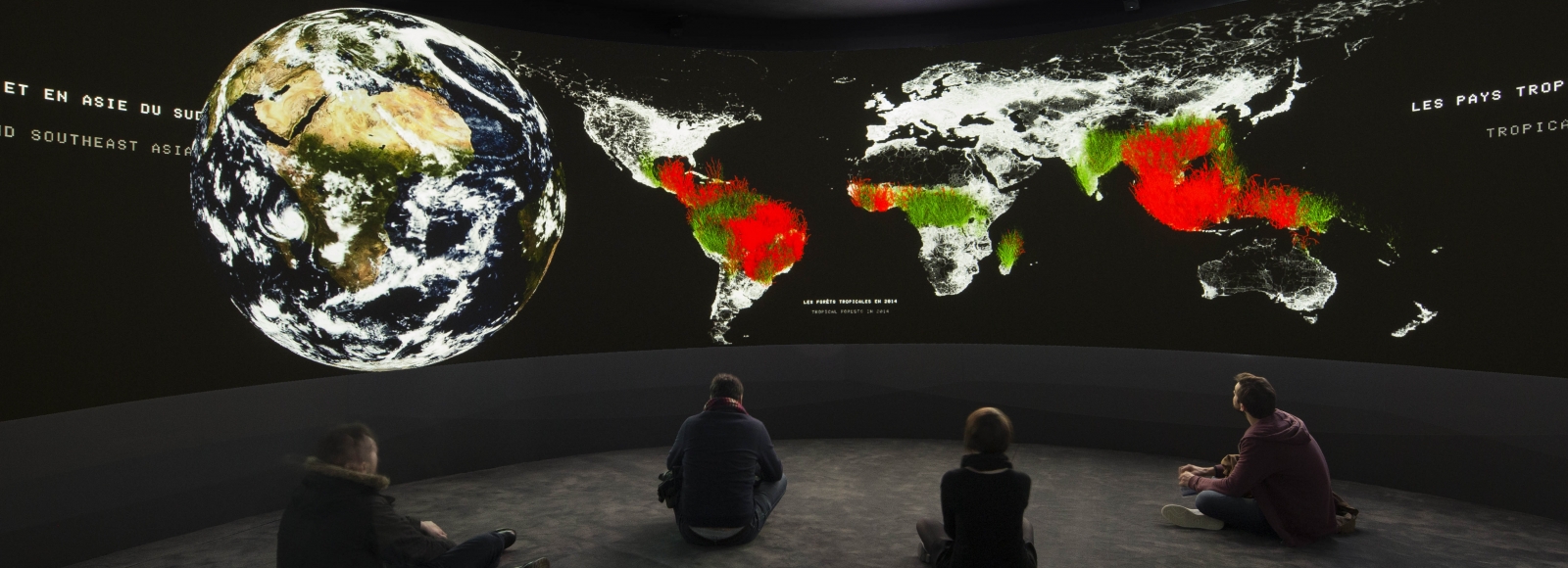EXIT
- When 7 Jan - 25 Mar 2017
- Where
-
Address
Cnr Oxford St & Greens Rd Paddington NSW 2021
-
Hours
Tues to Sat, 10am–5pm
-
Phone
+61 2 8936 0888
UNSW Galleries is proud to present the Australian premiere of a major new installation which holds a dramatic mirror to some of the immense challenges confronting the world today. 'EXIT' is a picture of a planet in trouble.
In an immersive, 360-degree installation, 'EXIT' visually correlates global human migratory trends with urgent social and economic issues: increasing urbanisation, economic displacement, political disruption, climate change, natural disasters, and deforestation. Data gathered from over one hundred sources is geocoded, processed through a programming language, and presented visually by a rotating globe that translates statistics into maps, texts, and trajectories as it orbits the space.
Recently updated, 'EXIT' was universally acclaimed when it was first exhibited at the Palais de Tokyo to coincide with the COP21 United Nations Climate Change Conference. Little more than a year later, with the escalating refugee and migration crises and the Paris Agreement in doubt, 'EXIT' is a timely reflection on many of the most important challenges we collectively face. This is a global forecast that Australians cannot afford to miss.
Australian premiere presented in association with Sydney Festival and major sponsors the City of Sydney. 'EXIT' will also be exhibited at the Ian Potter Museum of Art at the University of Melbourne in 2017.
Artists
Paul Virilio
Diller Scofidio + Renfro
Laura Kurgan
Mark Hansen
Ben Rubin
Gerard Pietrusko
Stewart Smith
—
Commissioned by the Fondation Cartier pour l'art contemporain, Paris, 'EXIT' is based on an idea by Paul Virilio, and created by Diller Scofidio + Renfro with Laura Kurgan, Mark Hansen, Ben Rubin in collaboration with Robert Gerard Pietrusko, Stewart Smith.
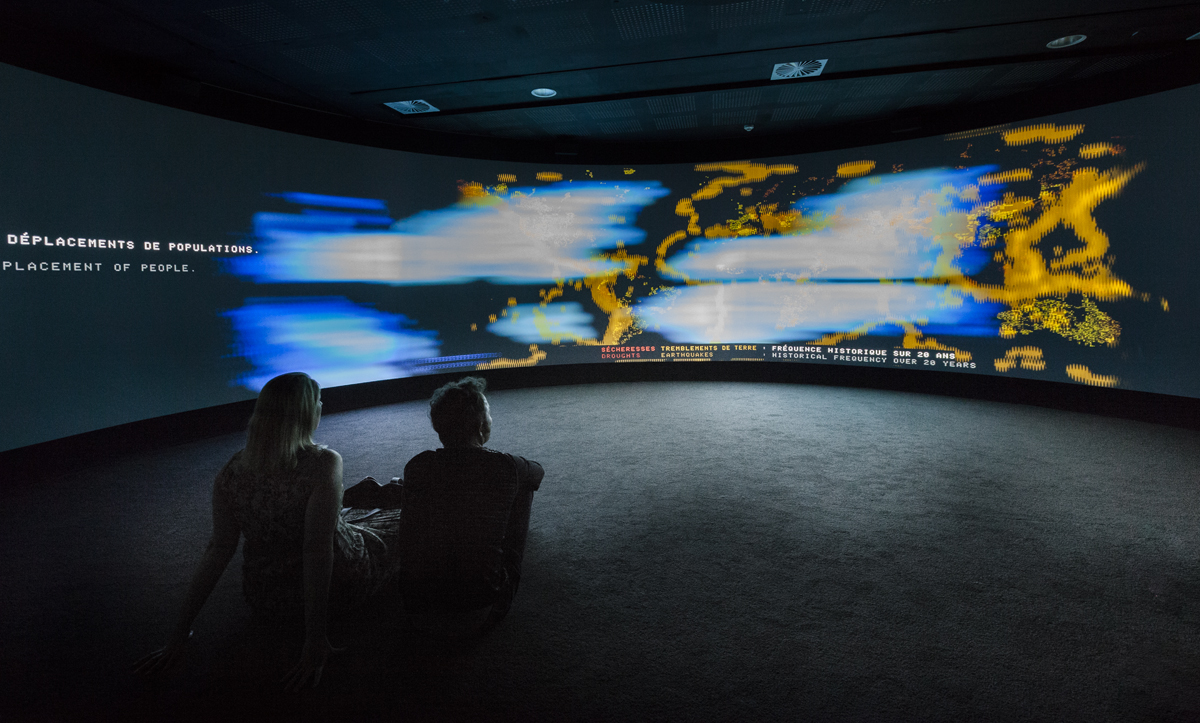
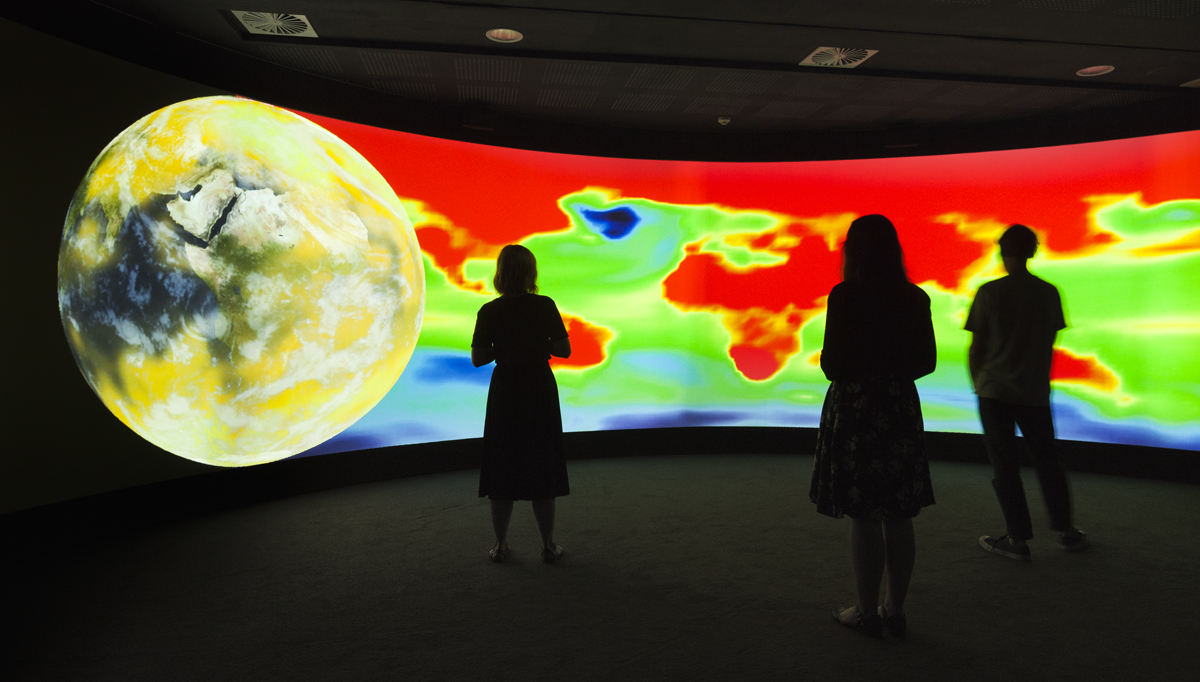
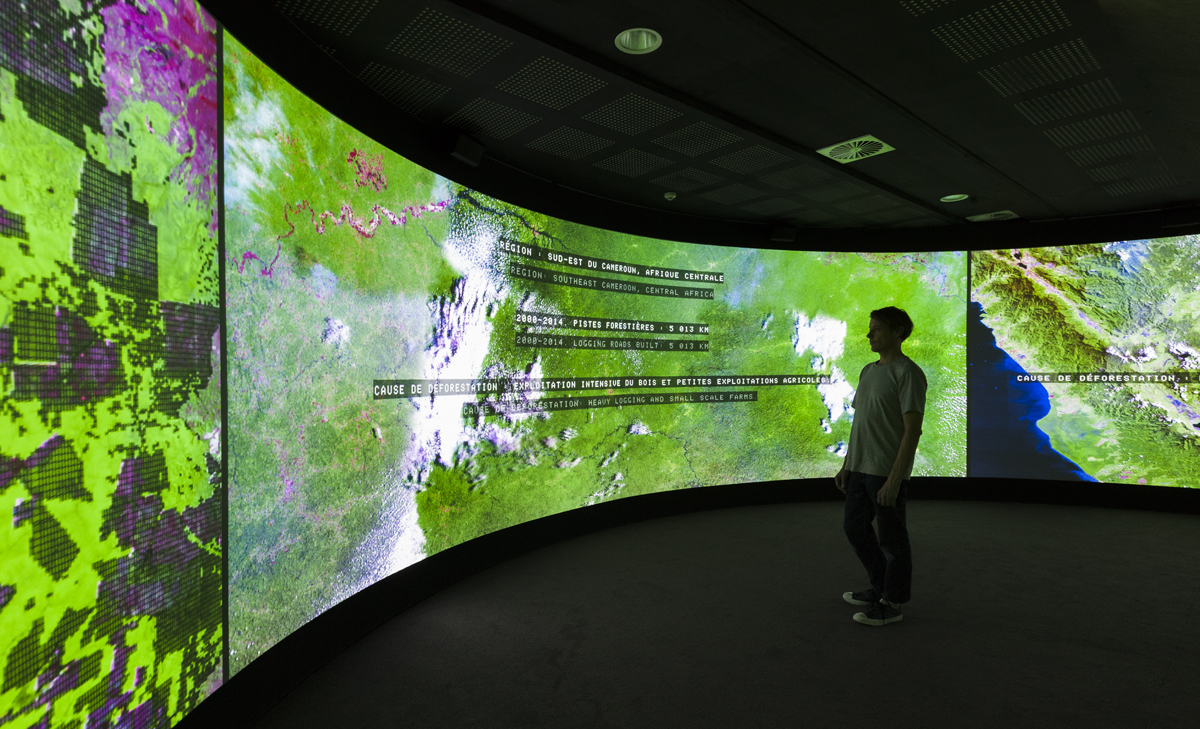
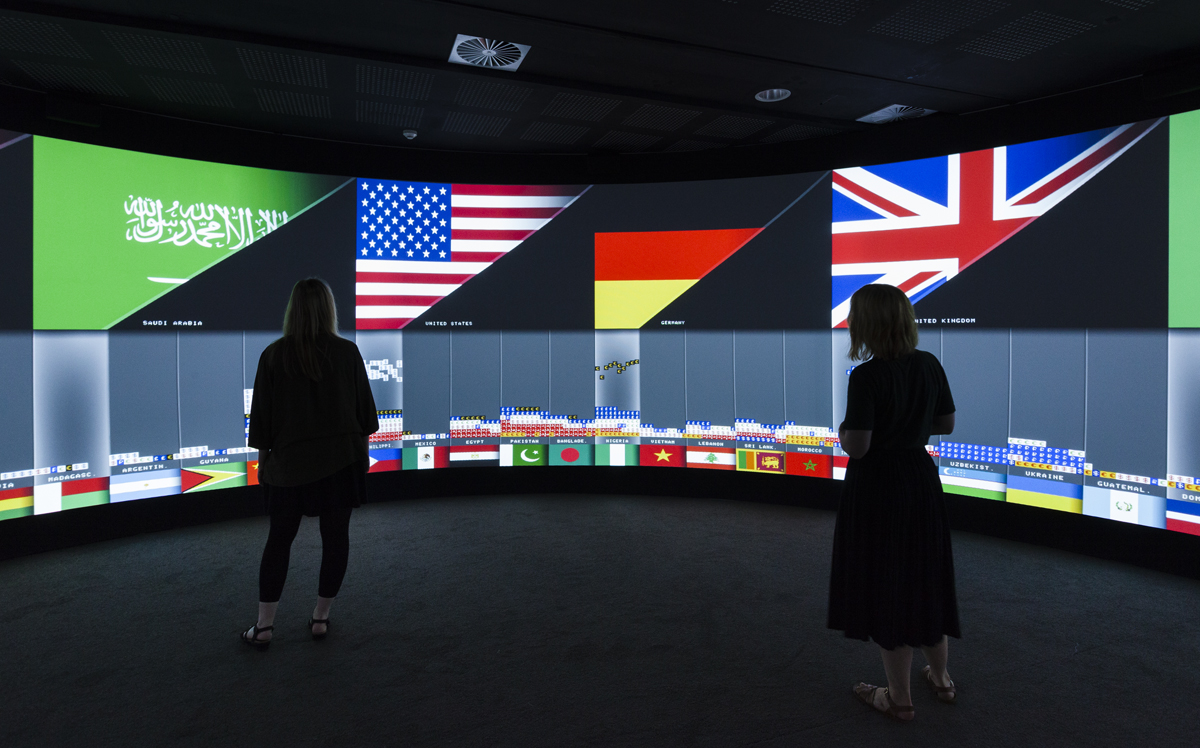

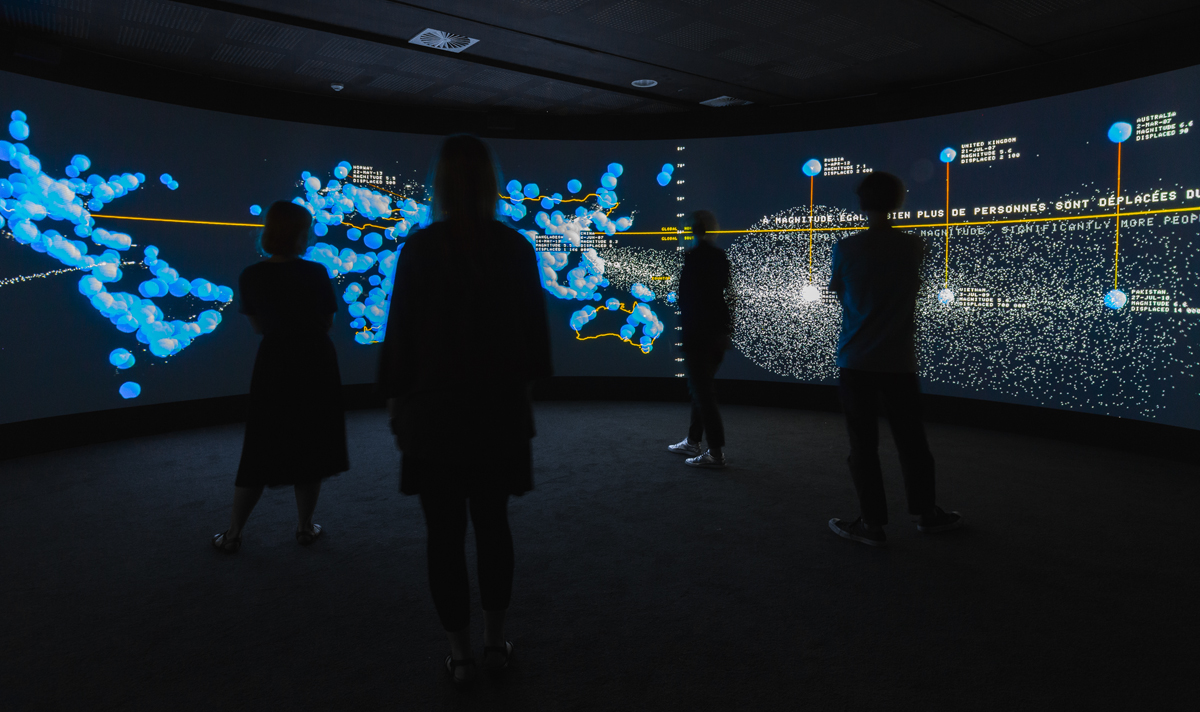
Public Program
Affective Shifts Inside and Outside Nation and Body: Rethinking How Refugee Research is Engendered
9am Tuesday 21 February, UNSW Art & Design Lecture Theatre EG02
This Academic Symposium is an attempt to rethink how to analyse the spaces and socialites of our lives with a focus on research with refugees and asylum seekers. It certainly requires greater ethical courage as well as deeper theoretical efforts to imagine the affective shifts of perspective that may help us challenge the complexities of contemporary times, especially the peculiar configuration of the relationship between the state and the bodies of refugees played out in punitive policies and damaging political rhetoric. This Symposium will aim to highlight how relationships that break down perceived boundaries of researcher and researched engender a different politics of affirmation with which the current tenor of public debate on refugees can be challenged.
Refugee Alternatives Conference
Wednesday 22 - Thursday 23 February
This Academic Symposium complements and feeds into the Refugee Alternatives Conference, a two-day conference, in conjunction with UNSW Grand Challenges, which brings together a broad range of expertise covering topics of displacement; protection; cooperation; wellbeing; resilience; education; advocacy; and unity. An extensive range of topics from across the local, national and international space will bring extensive and complimentary expertise to the Conference discussions, notably and vitally, that of lived experience.
Europe, Refugees and Our Obsession with Borders: A Crisis of Political Courage
6pm Wednesday 15 March, UNSW Galleries
A public lecture by Dr François Gemenne, a world authority on climate change and disaster-related migration. Dr Gemenne is a leading specialist in environmental geopolitics and migration governance, and a scientific consultant for 'EXIT'. His research deals with populations displaced by environmental changes and policies of adaptation to climate change. During his career, Dr Gemenne has conducted field studies in Tuvalu, China, Kyrgyzstan, the Maldives, Mauritius, New Orleans after Hurricane Katrina, and in Japan after the Fukushima disaster.





